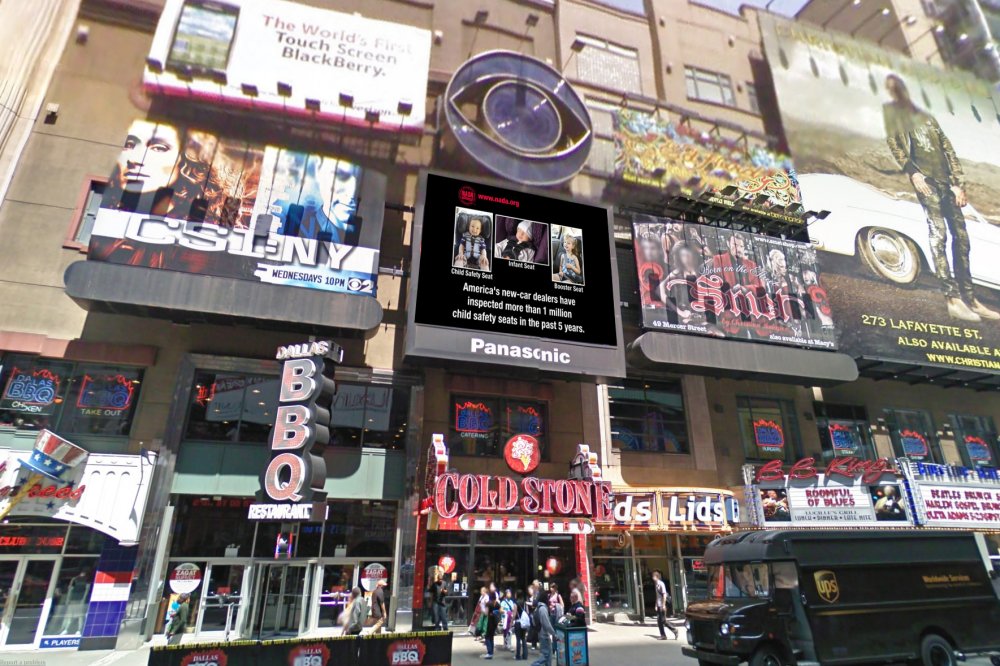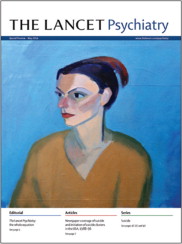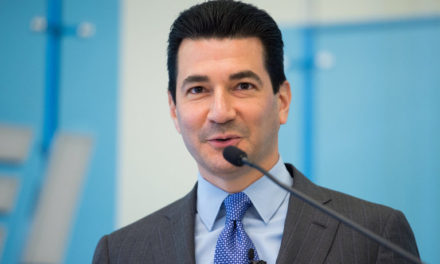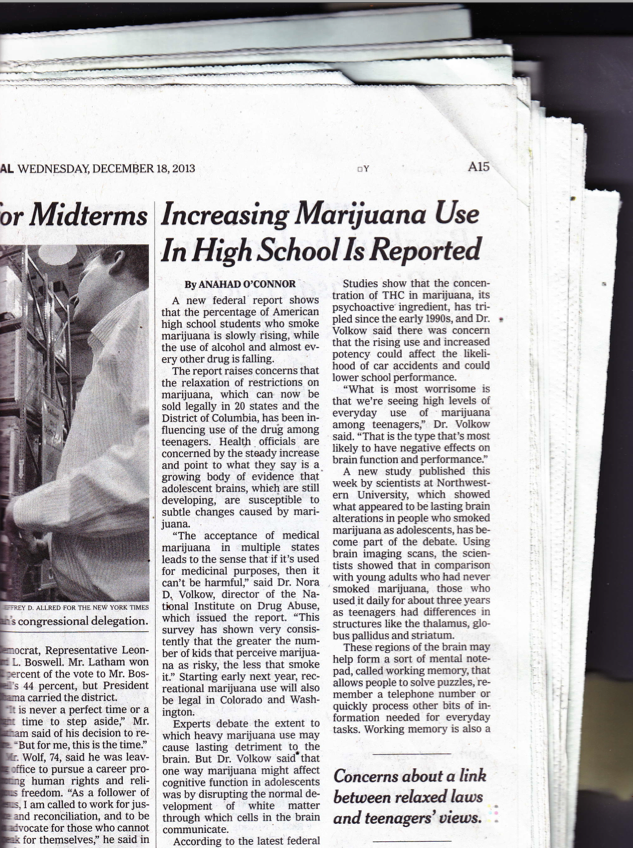By David Downs in the East Bay Express, April 15 Even though polls show that most Americans support the legalization of marijuana, corporate America continues to censor pot-related speech. Legal reformers are banned from issue-advocacy advertising; major websites such as Google, Facebook, and Yahoo prohibit the listing of legal marijuana businesses; and normal folks face even tougher reprisals for speaking out at work, at school, or in the community.
Justin Hartfield, founder of the nation’s leading marijuana locator site WeedMaps.com, is doing interviews this week telling people how lawyers for CBS Outdoor pulled his Times Square ad from rotation after the billboard company took his $50,000 and told him the ad launched on April 1. “It was surprising, but not shocking, just because this has totally happened to us in the past,” Hartfield told me.
WeedMaps’ 26-by-20-foot electronic billboard would have been the Big Apple’s first mainstream weed ad. Designed to increase awareness of reform and mobilize the community, the ten-second spot was approved to run on the CBS Super Screen on 42nd Street between 7th and 8th avenues, 18 hours a day for 61 days.
It was to read: “High, NYC” and was to feature a link to WeedMaps’ New York City marijuana resource site (WeedMaps.com/nyc). The website itself details the obvious: New York City’s illegal, but highly evolved weed scene; the state of the failed law; ways to contact politicians; plus a stoner’s guide to the Big Apple.
Because CBS is a private business, it can reject ads from whomever it wants, but the fact that WeedMaps cannot state the obvious to New Yorkers speaks volumes about the state of denial in this country. “More people get high in New York City than any other city,” WeedMaps.com/nyc states. “It’s just more difficult for New Yorkers to be open about it.”
WeedMaps submitted its ad proposal in late January and received multiple levels of approval by Toronto-based Neutron Media, which sells CBS Outdoor’s billboard spaces, Hartfield said. In fact, Neutron Media had first approached officials at National Organization for the Reform of Marijuana Laws and offered them the billboard — but they couldn’t afford it, so officials from NORML called the folks at WeedMaps.
“I thought it would be a good opportunity to do something similar to what NORML would do anyway, but also kind of branding WeedMaps, so I decided to take them up on it,” Hartfield said.
“So everything is all good and we go live with our press release,” Hartfield said. “I’m looking at the live webcam and don’t see the ad running. We sent an email to Neutron, and they said, ‘Yeah, it’s been live since 6 a.m. We’ll send you the proof.’ And then we never heard back until the following day, Wednesday, when they said it’s now pending review by CBS legal.”
As of press time, the ad was still pending legal review. The rejection is part of a broad, disturbing pattern: Weed reform advocates often cannot engage in the same speech as drug warriors or gun lobbyists.
In 2010, the Marijuana Policy Project tried to run pro-cannabis ads in California in the run-up to Proposition 19, a statewide measure that sought to legalize and regulate pot. But broadcasters rejected the ads, said Aaron Smith, now head of the National Cannabis Industry Association (NCIA). “The ad had nothing to do with saying marijuana is a good thing,” said Smith. “That’s what burns me.”
In March, Comcast rejected an informational ad about medical marijuana that was scheduled to broadcast in Long Island, New York, Massachusetts, and Chicago, USA Today reported.
Whether it’s the airwaves, outdoor spaces, or the internet, pot activists often aren’t allowed to engage in free speech. For example, Facebook routinely bans Smith from paying to “promote” news stories about the NCIA — even reports from the Wall Street Journal. Facebook promotions are vital to reaching the group’s base, he said.
Hartfield finds the double standards galling. “The ad is right above the Coldstone Creamery,” he said of his proposed billboard in Times Square. “And you could argue that there are a lot of families going there and ‘What message is that sending?’ Well, if you look up above the Coldstone to the building immediately to the left, you’ll see a 24-7 ad for [the beer] Stella Artois.”
Even where weed is legal — like Colorado and Washington and the 21 states that have embraced medical cannabis — marijuana businesses face unfair speech restrictions. Google, Yahoo, Bing, Facebook, and Twitter ban any ads promoting “illegal drugs” — which is truly ironic, given Google’s long history of running pill ads from overseas entities.
In 2011, the US Attorney in San Diego, Laura Duffy, even threatened newspapers for taking medical cannabis dispensary ads. Since the crackdown, many of those ads have disappeared from alt-weeklies, along with the cannabis reporting they paid for.
And then there’s the low-level, toxic thought-policing going on in schools, workplaces, and the halls of power. Lieutenant Governor Gavin Newsom routinely excoriates politicians he knows who only support legalization in private.
And the subject of my March 12 Legalization Nation column — 38-year-old Mika Hamilton from San Francisco — told us her son got suspended from an East Bay public school for saying cannabis was a medicine during an anti-drug lecture. “They said he was glorifying drugs. … I just took him home. I didn’t want to make trouble. … He was really upset. I had to explain to him that some people — they just don’t know.”





